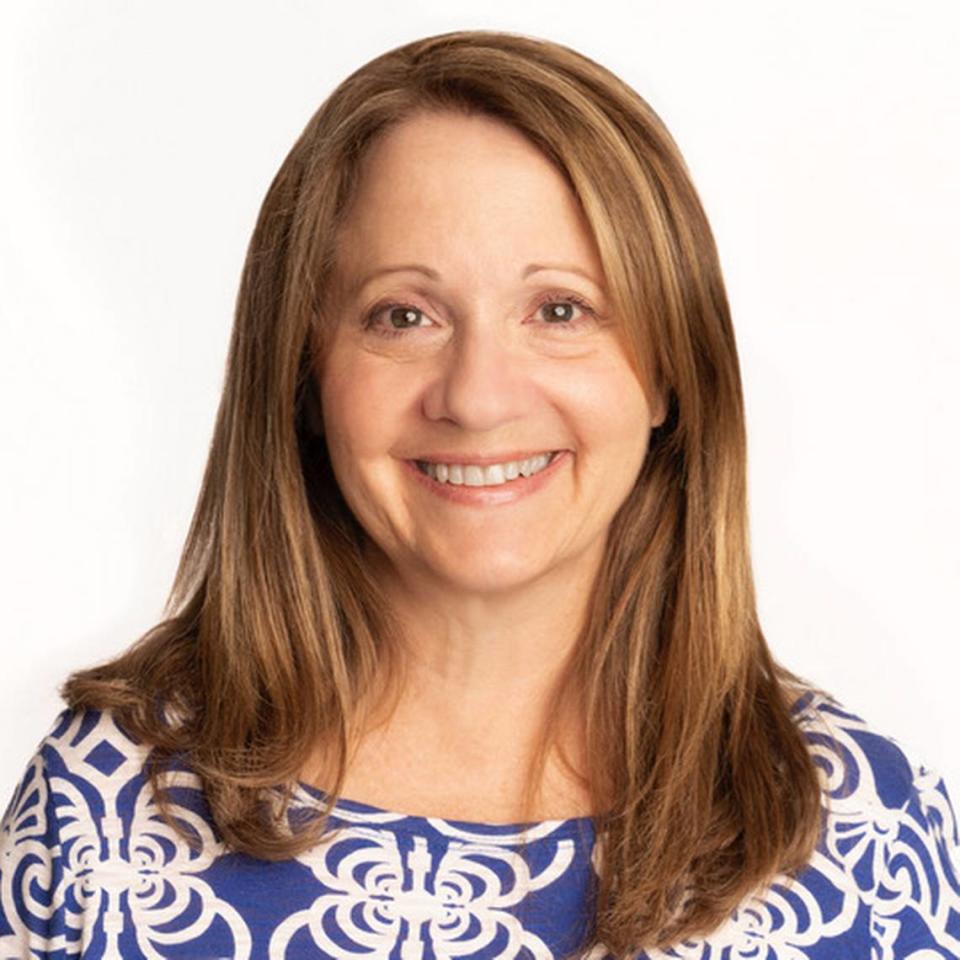SC’s Sister Senators deserve support in the June primary | Opinion
- Oops!Something went wrong.Please try again later.
- Oops!Something went wrong.Please try again later.
In October, the John F. Kennedy Library Foundation bestowed its prestigious Profile in Courage Award on a bipartisan group of five female state senators from South Carolina who took a stand against a near-total abortion ban. Now, they’re facing political blowback, including three who face challengers in the June 11 S.C. primary.
I was eager to watch the award ceremony online because I wanted to understand how despite their party differences — three “Sister Senators” are Republican, one a Democrat, one an independent — they joined together to block colleagues from passing a bill that would have essentially banned abortions in the state.

Republican Penry Gustafson was the first Sister Senator to step up to the award podium. She spoke of the courage it took to cast what a male senator warned her was a “career-ending vote.” She shared how a lifetime of struggles provided her with courageous moral capital. Yet, when Gustafson spoke about “the very lives of the babies lost to abortion,” I was taken aback. She was not my familiar brand of “pro-choice” feminist.
My jaw continued to drop when Republican Sen. Sandy Senn proclaimed that all the Sister Senators were “pro-life” — with differing opinions as to what that meant. Senn’s next sentence persuaded me not to write her off, but to view her as an ally: “We want mothers to have their babies, but it is going to be up to them because only they know their particular circumstances, and we will not judge.”
In “The Persuaders,” author Anand Giridharadas discusses “circles of influence” theory — a guide for navigating “coalitions and alliances of the imperfect without blowing it all up.” The Sister Senators might not share the same worldview on every issue, but as long as they agree about women’s and girls’ empowerment — the right to make decisions about their bodies — that’s enough common ground to build and keep a coalition.
Although the Sister Senators had been able to hold off a total abortion ban, Senn explained that to have held off the six-week ban would have required “two more reasonable women.” Senn laid out the only solution — elect more women who support reproductive rights. Her rationale: “When there is an imbalance of power in any circumstance, it needs to be corrected because only then will people negotiate and not dominate.”
Senn admonished fellow legislators: “Those who vote in lock-step with their party base every time, they are voting safely; they are not voting with the courage of conviction.”
Aren’t we all better off when people reflect and form their own opinions now and then, informed by their own values and life experiences?
When abortion became a legislative issue, Republican state Sen. Katrina Shealy, who was first elected in 2012 as the only female among South Carolina’s 46 senators, felt “it was time to stand up and tell the legislature to stand down.” She was censured by her county’s Republican Party for her position on the state’s abortion bill. Shealy is upfront: “Social issues have never been a strong leading part of my political party, unless they were fighting against them.”
Shealy rattles off statistics demonstrating why South Carolina has some of the worst maternal health in the country: “We have 46 counties and 15 of those counties have no OB-GYNs.” She describes South Carolina’s care of children after birth as “abysmal.”
No matter their differences, Shealy asserts that the Sister Senators, including independent Sen. Mia McLeod and Democratic Sen. Margie Bright Matthews, share the belief that “women deserve to have the best health and the right to privacy over our own bodies.”
June primary challenges loom for the three Republican Sister Senators. Make no mistake, each one has a conservative record that clearly shows them in the mainstream of the Republican Party, except on abortion. Yet at the awards ceremony Senn noted that fellow Republicans accuse her of not being Republican enough. To that, she replied by quoting John F. Kennedy: “Let us not seek the Republican answer or the Democratic answer but the right answer.”
The right answer is to support all the Sister Senators.
Amy Lefkof is a board member of Project 50, a national organization that helps state-based groups get pro-choice candidates elected and holds them accountable for supporting reproductive rights. She lives in Charlotte, N.C.

